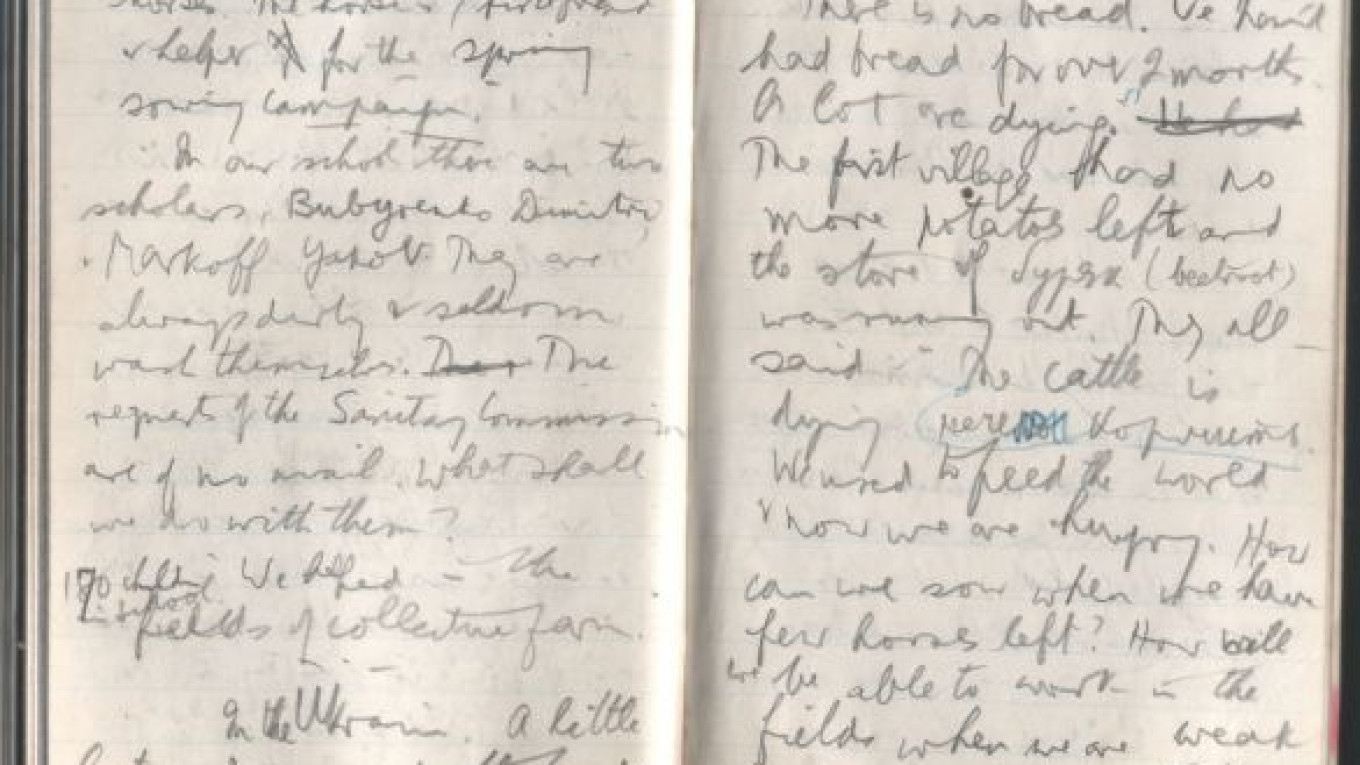LONDON — The diaries of a British reporter who risked his reputation to expose the horrors of Stalin’s murderous famine in Ukraine were put on public display for the first time Friday.
Journalist Gareth Jones sneaked into Ukraine in March 1933, at the height of a famine engineered by Josef Stalin. Millions of people starved to death between 1932 and 1933 as the Soviet secret police emptied the countryside of grain and livestock as part of a campaign to force peasants into collective farms. Jones’ reporting was one of the first attempts to bring the disaster to the world’s attention.
“Famine Grips Russia — Millions Dying,” read the front page of the New York Evening Post on March 29, 1933. “Famine on a colossal scale, impending death of millions from hunger, murderous terror … this is the summary of Mr. Jones’ firsthand observations,” the paper said.
As starvation and cannibalism spread across Ukraine, Soviet authorities exported more than a million tons of grain to the West, using the money to build factories and arm its military. Historians say 4 million to 5 million Ukrainians perished.
Walking from village to village, Jones recorded conversations with desperate people scrambling for food, scribbling brief interviews with them in pencil on lined notebooks.
“They all had the same story: ‘There is no bread — we haven’t had bread for two months — a lot are dying,”’ Jones wrote in one entry.
“We are the living dead,” he quoted a peasant as saying.
Jones’ eyewitness account had little effect on world opinion at the time. Stalin’s regime tightly controlled the flow of information out of the Soviet Union, and many Moscow-based foreign correspondents — some of whom had pro-Soviet sympathies — refused to believe Jones’ reporting.
The New York Times’ Walter Duranty, a Pulitzer Prize-winning journalist, dismissed Jones’ article as a scare story. Other correspondents chimed in with public denials, and with his colleagues against him, Jones was discredited.
Eugene Lyons, a U.S. wire agency reporter who gradually went from Communist sympathizer to fierce critic of the Soviet regime, admitted the role that fellow journalists had played in trying to destroy Jones’ career in 1937. But his admission came too late for Jones, who was killed by bandits in 1935 while covering Japan’s expansion into China in the run-up to World War II. The full circumstances of his death remain murky.
Jones’ diaries are on show at Trinity College at the University of Cambridge, where he was a student, until mid-December.
A Message from The Moscow Times:
Dear readers,
We are facing unprecedented challenges. Russia's Prosecutor General's Office has designated The Moscow Times as an "undesirable" organization, criminalizing our work and putting our staff at risk of prosecution. This follows our earlier unjust labeling as a "foreign agent."
These actions are direct attempts to silence independent journalism in Russia. The authorities claim our work "discredits the decisions of the Russian leadership." We see things differently: we strive to provide accurate, unbiased reporting on Russia.
We, the journalists of The Moscow Times, refuse to be silenced. But to continue our work, we need your help.
Your support, no matter how small, makes a world of difference. If you can, please support us monthly starting from just $2. It's quick to set up, and every contribution makes a significant impact.
By supporting The Moscow Times, you're defending open, independent journalism in the face of repression. Thank you for standing with us.
Remind me later.


